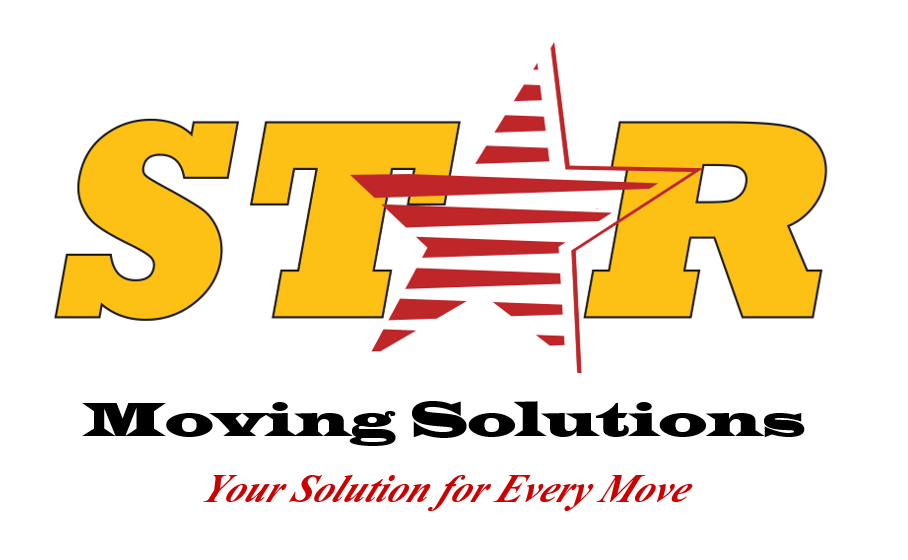Corporate relocations, whether domestic or international, often present numerous obstacles for both employees and employers. In this blog post, we will examine the challenges of corporate relocations and provide effective solutions to make the process easier.
We begin by discussing negotiation strategies for executive relocation packages that cover temporary benefits, transportation expenses, remote work options during transition periods, and tax implications. Next, we address family needs in corporate relocations – from early discussions with family members, to addressing children’s education and assisting spouses or partners with career opportunities.
Negotiating an Executive Relocation Package
An important step in the corporate relocation process is negotiating a comprehensive executive relocation package, that covers potential risks associated with accepting a new job offer. Ensure you include provisions for temporary relocation, transportation costs, commuting expenses, remote service options, tax implications, and assistance in securing a new home.
Temporary Relocation Benefits
When relocating for work purposes, it’s essential to have access to temporary housing solutions during your transition period. This can include short-term rentals or company-provided accommodations. Negotiate these benefits as part of your relocation package to minimize out-of-pocket expenses.
Transportation and Commuting Expense Coverage
Moving costs can add up quickly; therefore, ensure that your employer covers transportation expenses related to moving personal belongings and vehicles. Additionally, discuss any necessary commuting arrangements such as car allowances or public transit reimbursements once you’ve settled into your new location.
Remote Work Options During Transition Period
- Flexible Working Hours: Request flexibility in working hours while transitioning between locations, which allows time for house hunting and other logistical tasks without impacting productivity.
- Vacation Days: Consider asking for additional vacation days during the move so you can focus on settling into your new environment without worrying about work obligations.
- Trial Periods: If possible, negotiate a trial period where you can work remotely before fully committing to the move – this will give both parties ample opportunity to assess if the arrangement works well long term.
Tax Implications of Relocating
Relocating for work can have tax implications, especially if moving across state lines or internationally. Discuss with a taxation specialist to understand the possible repercussions on your taxes and any deductions you may be entitled to as part of your relocation package.
Negotiating an executive relocation package is a complex process that requires careful consideration of all aspects. Yet, with suitable prep and support, it can be a successful and advantageous experience for all involved. Considering family needs during corporate relocation must also be considered to ensure a smooth transition for everyone involved in the move.

Considering Family Needs During Corporate Relocation
Shifting for a career can be an energizing prospect, yet it’s best to consider not just your own necessities but also those of relatives who may be influenced by this move. Ensuring their support will help make transitions smoother for everyone involved. Exploring the worries and requirements of your family in a business move will be discussed next.
Discussing the Decision with Family Members Early On
Open communication is key when considering a major life change like relocating for work. Engage your spouse and children in the conversation about relocating for work as soon as possible, to allow them time to express their thoughts and worries. By working together, everyone can benefit from the decision.
Addressing Children’s Educational Needs in the New Location
Your children’s education should be a top priority when planning a move. Research schools in the new area well ahead of time so you can ensure they receive quality education upon arrival. Consider factors such as school ratings, extracurricular activities offered, and class sizes when making decisions about where they will attend school post-move.
- greatschools.org: A comprehensive resource on K-12 schools nationwide.
- National Center for Education Statistics School Search Tool: Find information on public schools throughout the United States using data from NCES.
Assisting Spouse or Partner with Career Opportunities
If your spouse or partner is also working, it’s important to support their career goals during the relocation process. Help them research job opportunities in the new area and connect with local professional networks. Additionally, check if your company offers spousal relocation assistance as part of your executive relocation package.
When planning a corporate relocation, the needs of family members must be considered. When thinking of a global shift, it is essential to recognize the special demands associated with it and prepare accordingly.
Preparing for International Corporate Relocations
Moving across countries or continents brings additional challenges such as administrative processes, packing and decluttering belongings, cultural adaptation, and engaging professional assistance. Being proactive can mitigate potential risks while ensuring a smooth transition into your new role and location.
Administrative Processes like Visas and Work Permits Research
Navigating the complexities of international relocation requires thorough research on visas and work permits. Understanding the requirements for your destination country will help you avoid delays in processing essential documents. Reach out to local embassies or consulates to gather accurate information about application procedures.
Packing Tips to Minimize Clutter during International Moves
- Create an inventory list of all items before packing them up.
- Consider selling, donating, or storing items that are not essential for your move.
- Invest in durable packing materials like bubble wrap and sturdy boxes to protect fragile belongings during transit.
- Label each box clearly with its contents, making unpacking easier at your new home.
Cultural Adaptation Strategies Including Language Lessons
To ease the process of adapting to a new culture, consider taking language lessons before relocating. Familiarizing yourself with basic phrases will make daily interactions smoother. Additionally, research customs and traditions specific to your destination country so you can better understand social norms. Participate in local events upon arrival; this will help build connections within the community while fostering cultural understanding.
It is important to be prepared for any international corporate relocation to minimize the risks and maximize success. Professional global relocation services can help throughout the process, from administrative paperwork to property searches.

Engaging Professional Global Relocation Services
For a smooth transition to your new home abroad, it is wise to employ the services of an experienced global relocation firm. They provide invaluable guidance throughout the process, which helps you focus on settling into your new position more efficiently.
Benefits of Hiring Professional Global Moving Companies
- Expertise: A professional moving company like Star International has extensive experience and knowledge in handling complex international relocations. These moving companies provide an effortless and tension-free move for you and your loved ones.
- Packing And Shipping: Professional moving companies have skilled packers who know how to properly pack your belongings for safe transport across borders. Additionally, they handle customs clearance procedures, saving you time and effort.
- In-transit Insurance: Reputable global movers offer insurance coverage options to protect against potential damage or loss during transit.
How Professionals Handle Complex Paperwork Requirements
Moving internationally involves navigating through various administrative processes such as obtaining visas, work permits, and complying with import/export regulations. A reliable relocation service provider will guide you through these requirements, by helping with documentation preparation and submission, while keeping track of deadlines to avoid any delays or penalties.
Assistance Provided by Experts During Property Search
Finding suitable accommodation can be challenging when relocating overseas due to language barriers or unfamiliarity with local real estate markets. An experienced global moving company typically partners with local property search experts, who understand the housing market in your destination country. They can help identify properties that meet your preferences while considering factors such as proximity to your workplace, schools, and amenities. This ensures a smooth transition into your new home and community.
FAQs: What are the Common Challenges Faced During a Corporate Relocation and How Can they Be Mitigated?
What difficulties do people face in relocation?
During relocation, individuals often encounter challenges such as adjusting to a new environment, finding suitable housing, managing logistical aspects of the move, dealing with legal and administrative requirements like visas and work permits, and addressing family needs including children’s education and spouse’s career opportunities.
What are the top three problems with relocation?
The top three problems faced during relocation are typically: 1) managing logistics of packing and transportation; 2) navigating legal/administrative processes for visas or work permits; 3) adjusting to cultural differences in a new location. These challenges can be mitigated by engaging professional global moving companies like Star International.
What are the problems with relocation in business?
In business relocations, common challenges include disruption of operations during the transition period, increased costs associated with moving expenses or temporary accommodations for employees, and potential loss of key staff members who may not want to relocate. To minimize risks involved in office relocations, it is essential to have a well-planned strategy that includes clear communication channels between management teams.
Conclusion
Corporate relocation can be a daunting undertaking, but with the right planning and preparation it can become less stressful. Negotiating an executive relocation package that covers temporary relocation benefits, transportation expenses, remote work options during the transition period, and tax implications of relocating is crucial. It’s also important to consider family needs by discussing the decision with family members early on, addressing children’s educational needs in the new location, and assisting your spouse or partner with career opportunities.
For international corporate relocations, administrative processes like visas and work permit research should be done beforehand. Packing tips to minimize clutter during international moves and cultural adaptation strategies, including language lessons, are also helpful. Engaging professional global relocation services is highly recommended as they handle complex paperwork requirements and help during property search.
If you’re looking for a reliable moving company for your corporate relocation needs, contact Star International. We offer comprehensive global moving solutions tailored to meet your unique requirements.














